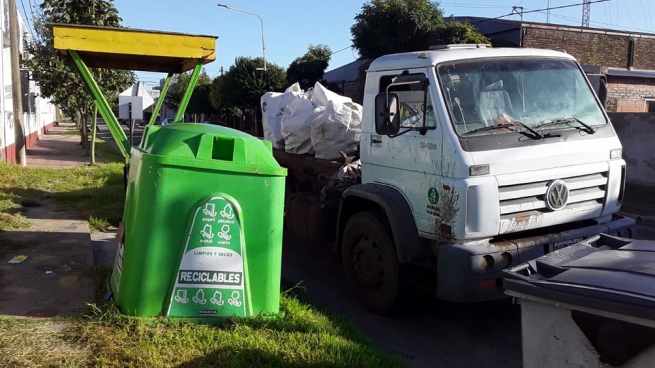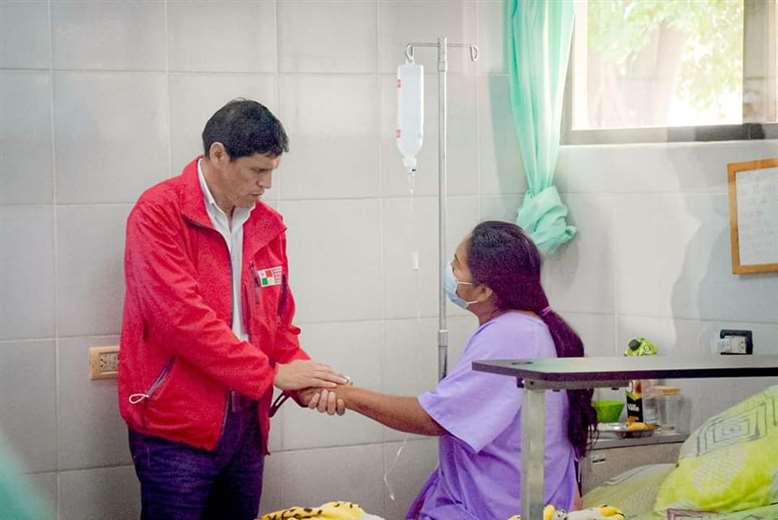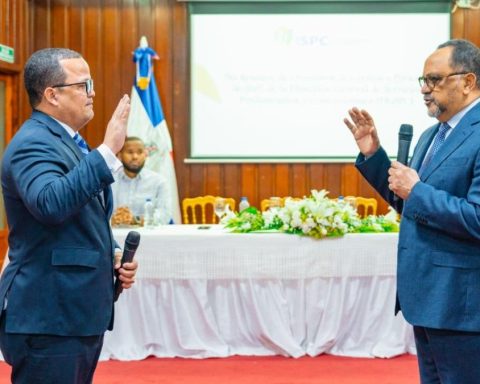Waste separation and composting can be carried out “simply” in homes so that discarded materials “come back to use” and a large part of the waste that people generate on a daily basis is reduced, of which “more than 50% are organic”told Télam environmentalists on the occasion of World Recycling Day, which is celebrated this Tuesday.
The environmental organizations consulted stressed the importance of people reflecting on their consumption habits in order to incorporate actions that contemplate what specialists and activists call “the three R’s”: reduce, reuse and recycle.
Federico González Chapur, referent of the environmental organization Eco Househighlighted that, in general terms, there are two types of measures that can be incorporated to contribute to the preservation and sustainability of the planet: “The collective, far-reaching, and the individual, restricted to a more intimate and private sphere, of less scale”.
“Just as recycling without the States carrying out an energy transition plan will not be enough, the reverse would not be enough either: for Argentina to implement an energy transition plan while thousands of people continue to reproduce, without bad intentions, a consumption system linear ‘buy and throw away,'” said González Chapur.
In that sense, the activist characterized as “fundamental” the performance of waste separation tasks. And he requested to take into account that, every time we fill the garbage bag, “more than half is made up of organic waste, which does not take long to decompose.”
González Chapur explained that it can be recycled “super easily” at home. “Just by having a separate bag or container,” he said, “it’s enough to throw the containers and materials that are recyclable there.” Among them he mentioned: clean plastics, metals, glass and cardboard.
In this regard, the environmentalist added what he called “one more benefit” of waste separation: “Today there are thousands of urban recycling workers in a precarious state. It is thanks to them that our recyclable waste reaches its destination.”

“Is it the same to have to sort through garbage to find recyclable materials than to have them properly separated?” He asked himself, then answered: “It seems silly, but it’s not. It’s by recycling that we get that material produced by human beings can come back to use.”
Meanwhile, he stressed the importance of the State promoting a law that encourages manufacturers to take financial or physical responsibility for those products once their useful life has expired. “They are the ones who generate this waste,” emphasized González Chapur.
And he added that the role of the State should contemplate the closure of open-air dumps and the promotion of a differentiated collection and disposal system.
“With educated and informed people and a responsible State, we are going to produce a great change in one of the problems of this social and environmental crisis, which is waste management,” he added.
For its part, the Raíces Urbanas organization holds workshops on environmental education, agroecology and sustainable developmentamong which are those dedicated to composting, a process that transforms organic waste and allows it to be converted into fertilizer for the earth through a natural oxidation process.
composting
emilio bidegainone of the organization’s referents, pointed out that, through this process, “approximately a third of the waste we produce on a daily basis will become that compost, which recirculates in the chain of nature”.
In addition, he stressed the importance of this transformation for two reasons: on the one handthe product will serve as fertilizer for the land, and on the other hand, it will reduce the amount of garbage that is produced, which has a “notorious impact both at the micro and macro levels.”
Among the most common waste that can be used for compost are -in greater quantity- the peels and remains of fruits and vegetables, along with yerba mate, coffee, the remains of infusions, eggshells and nuts, and waste. of garden as dry leaves, grass and branches.
The referent also explained that waste management and composting allow us to get out of the idea of ”linear consumption” and think in terms of “circular economy”by diverting debris from the road leading to the cordon sanitaire.
“At first glance, this may seem minor, but it is not. Human beings in large concentrations like the ones we have in cities produce a lot of garbage every day, that garbage has to be collected and is redistributed in dumps, which are sources of contamination and infections,” he added.
In turn, with better management of the amount of organic waste that is generated daily, the means of transport are also reduced, and therefore, the carbon footprint generated by that transport.
In this way, Bidegain argued that “The benefits are multiple from all points of view, not only ecological, but also economic.”
To get started in waste management, Bidegain recommended that “it is important to stop to think and reflect on our consumption and our power as consumers”.
“Ask ourselves what we consume and where it comes from. If I buy a product that comes from far away and has an added cost of transport and that transport produces greenhouse gases, if it comes with a lot of packaging that I will not be able to reuse later and that will go straight to the recycling bin,” he exemplified.
Lastly, he stressed the importance of people can become “agents of change”, whether through environmental education, work in a vegetable garden or through workshops that combine art and nature: “Taking recyclable elements from nature helps us to collectively express and build new meanings, new ways of seeing and thinking about world”.
And he concluded that “we must begin to think that the city is part of nature. To think about the health of the environment is to think about our health.”


















